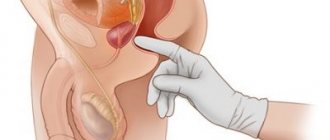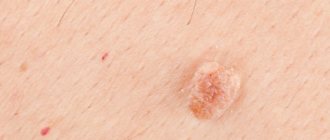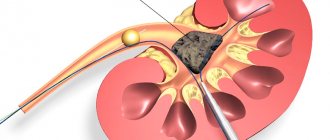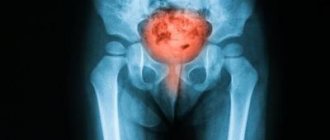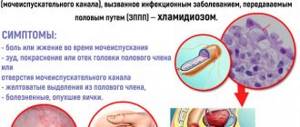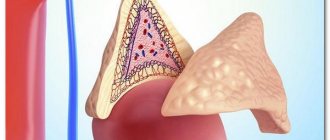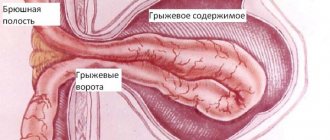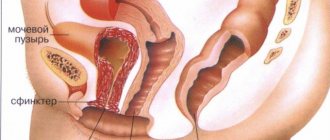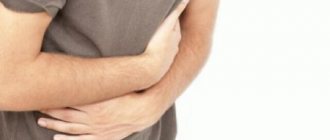Bladder disease in men has different symptoms, depending on the affected part of the genitourinary system. The urethra is most often affected. The inflammatory process manifests itself as pain, heaviness in the perineal area and discomfort during urination. The appearance of these symptoms forces a man to visit a doctor. After all, one can only dream of a normal existence with such discomfort. Today, many bladder diseases are known. The doctor is able to make the correct diagnosis based on the data obtained.
Bladder Basics
To determine pain in a particular organ, you need to know exactly where the bladder is located in men. An unpaired organ that performs the function of collecting and removing urine from the body is located in the lower abdomen. To be more precise, between the pubic bone and the rectum. The difference between women and men is that the latter have a prostate and seminal vesicles behind the organ. An enlarged prostate leads to problems with the excretory system. Being in the process of filling the organ cavity, its apex touches the abdominal wall, which leads to an increased urge to urinate.
Primary inflammation of the organ is extremely rare. Such cases are only possible if the man is fasting, or if foreign bodies have appeared in the bladder (these could be stones).
Typically, inflammation acts as a complication when a urinary tract infection spreads throughout the reproductive system. This disease is usually called cystitis. It is treated both with medication and with the use of folk remedies.
Organ injuries
Injuries and injuries to the bladder are relatively rare, but have quite dangerous consequences.
Such injuries rarely occur in isolation; they usually accompany damage to the pelvic organs, rupture of the pubic symphysis, and damage to the abdominal organs. Against the background of more severe injuries, symptoms of bladder damage may not attract attention. A characteristic sign of bladder injury is blood in the urine, and its content decreases slightly with each serving. Acute urinary retention is possible, which is accompanied by pain and sometimes increased body temperature. The most dangerous bladder injury is bladder rupture. Signs of a ruptured bladder:
- Sharp pain in the pubic area, pain radiates to the inner thighs and other areas of the abdomen, intensifies when walking and with any tension in the abdominal muscles.
- Acute urinary retention. It is possible to separate small amounts of urine mixed with blood. Because blood has very good coloring properties, urine may appear bright red.
- Increase in body temperature to 38-39˚C.
- In the absence of immediate medical care, symptoms of peritoneal irritation and impaired consciousness may develop.
This condition requires surgery, and as soon as possible, since the development of peritonitis and intoxication syndrome with substances contained in the urine is possible. Both conditions are extremely life-threatening.
Causes of bladder inflammation
Pathological conditions of the bladder in men can be caused by various reasons. The most common of these are the following diseases:
- prostatitis in any of its forms. The consequences of prostatitis for men can be extremely serious, including impotence;
- urethritis, which is treatable;
- may be provoked by sexually transmitted diseases;
- presence of stones in the bladder;
- BPH;
- malignant tumors that are treated only in the early stages;
- pyelonephritis;
- decreased immunity (due to stress or infections);
- hypothermia.
Symptoms and treatment of diseases are determined only by a doctor.
Signs of the disease
You should go to the hospital as soon as new symptoms are noted:
- Cutting and pain when urinating. They are concentrated in the groin, urethra, and scrotum.
- A clear symptom of the problem is that the urine changes color. Bloody spots appear in it.
- Frequent urge to go to the toilet, which becomes more frequent at night.
- Decreased volume of urine excreted.
- Incontinence.
- Heaviness in the bladder in men. At the first signs of severity, you need to pay attention to the genitourinary system and its functioning.
- Signs of intoxication that occur in severe cases.
- Signs of cystitis include chills, chronic fatigue and fever.
- An increase in temperature usually indicates the infection is spreading.
One or more signs may occur. If symptoms worsen, treatment should be started. Listed above are the most common signs of bladder disease in men. Symptoms may vary depending on the course of the disease, as well as in the case of additional pathologies added to the main disease.
Leading symptoms
Despite their different genesis, all diseases of the genitourinary system have a certain “set” of symptoms:
- Frequent urge to urinate, including false ones.
- Painful urination.
- Difficulty urinating (weak stream, leakage of urine)
- Feeling of incomplete evacuation, even if the patient has just urinated.
- Feeling of burning, fullness, pain.
- The appearance of red blood cells, pus, and sediment in the urine.
- Increase or decrease in daily urine volume.
As a rule, all symptoms appear to one degree or another. However, even if 1-2 symptoms are detected, including mild ones, you should visit a urologist.
Basic methods for diagnosing diseases
Even knowing the exact location of the bladder in men, it is difficult for a specialist to make an unambiguous diagnosis, since the disease may outwardly resemble a completely different anomaly. However, during the initial examination, the doctor asks questions about existing diseases and symptoms, which gives him more information about the patient’s condition.
To make an accurate diagnosis, it is important to conduct several studies:
- Ultrasound assesses the condition of all organs of the male genitourinary system. Widely used due to its safety. This is a good way to record the manifestations of the disease.
- Cytoscopy to check the condition of the bladder wall. To do this, you need a cytoscope device, which is inserted directly into the urethra.
- X-ray methods are used to obtain an image of the abdominal cavity.
- If there is a suspicion of the presence of stones in the cavity of the bladder, a technique is used to inject a contrast agent and track it using x-rays.
- Modern techniques - different types of tomography, give a fairly accurate result, which gives an idea of the pathological processes developing in the abdominal cavity.
It is also important to do urine and blood tests to determine antibiotic sensitivity.
How to treat cystitis in men
Uncomplicated primary cystitis with properly prescribed therapy can be cured in 7-8 days. Chronic cannot be treated. It can be put into stable remission and maintained with all efforts.
Bacterial cystitis is treated with antibiotics, which are prescribed based on the results of urine culture. Usually these are cephalosporins, fosfomycin, fluoroquinolones: Nolitsin, Azithromycin, Levofloxacin. To relieve pain, non-steroidal anti-inflammatory drugs and antispasmodics are prescribed.
Effective methods for treating cystitis
Treatment of symptoms of bladder inflammation in men can be carried out using various methods.
The conservative method involves taking drugs from various groups:
- Antibiotics:
- Ampicillin;
- Co-trimoxazole;
- Nitroxoline;
- Tetracycline;
- Trichopolum;
- Cefazolin;
- Cephalexin;
- Furadonin;
- Furagin.
- Anti-inflammatory drugs;
- Painkillers (No-shpa, Drotaverine);
- Drugs to eliminate organ dysfunction;
- Immunostimulants;
- Herbal medicine (Canephron, Cyston).
Antibiotics will prevent inflammation from spreading, painkillers will improve the patient’s condition, and immunostimulants will increase the body’s resistance. However, the choice of drug is made only by the treating specialists. Hygiene procedures and ensuring sufficient water consumption are equally important. A large amount of liquid allows you to wash away some of the bacteria naturally.
Diet as a method of treating inflammation
Regardless of kidney and bladder disease, symptoms and signs of the disease can be corrected with a special diet. When treating pathologies of the bladder, a gentle diet is recommended. The diet should include fresh vegetables and fruits, dairy products.
The ban applies to the following dishes:
- fried;
- sour;
- salty;
- fatty.
You also need to exclude fast food, chocolate, alcohol, coffee and carbonated drinks.
Table 1 - Diet for bladder inflammation
| Groups | Products |
| Useful | Watermelon, melon, cucumbers, pumpkin, dairy products, whole grain bread, cereals, cereals |
| Harmful | Fried foods, marinades, pickles, fatty foods (lard), fast food, alcohol, coffee, soda |
It is important to ensure adequate fluid intake.
Treatment of urethritis with herbs
Urethritis is an infectious disease that causes acute inflammation of the urinary system. The cause of the disease is viruses and bacteria. Both men and women suffer from this pathology.
Herbs for treating the bladder, especially with this pathology, should be aimed at strengthening the immune system and relieving inflammation. Most often currants, sage, parsley, and linden are used for therapy. Based on these herbs, herbal infusions and kidney tea are prepared.
Infusions are easy to prepare as follows:
- Two tablespoons of currant leaves are poured with 400 ml of boiling water. The decoction must sit for half an hour. You need to take the resulting product in small portions throughout the day.
- In equal parts, you need to mix chamomile flowers, black poplar buds, lingonberry leaves, St. John's wort, and black elderberry. Two tablespoons of a mixture of herbs are poured into the floor with liters of boiling water and left in a thermos for twelve hours. You need to take a quarter glass during the day.
- Six grams of marshmallow root powder are poured into a glass of cool water and left overnight. You should drink half a glass during the day, the rest before bed.
Herbal remedies help reduce inflammation, reduce symptoms, and make the healing process less painful.
Chamomile decoction will help cure urethritis
Alternative medicine recipes
For the treatment of inflammatory processes of the genitourinary area, folk recipes of herbalists are widely used. There are many plants that answer the question of how to treat bladder inflammation in men.
If the cause of the disorder is cystitis, the following remedies will help:
- Infusion of prickly tartar.
- Mint collected during flowering. A decoction is prepared from it, which is taken for a month.
- Tincture of poplar buds.
- Dill herb decoction.
- For catarrhal cystitis, a solution of birch tar with warm milk is used.
- Infusion of carrot tops.
- Sokrepa decoction.
- Decoction of May birch bark.
To relieve pain and spasms, as well as for renal colic, you can prepare an infused decoction of black nightshade. It will also help with other bladder diseases, the symptoms of which are similar.
If the cause of pain is kidney disease, a mixture of celery seeds, honey, pine nuts, rose hips, and celery root juice will help.
To combat inflammation, the following decoctions are recommended for men:
- from a mixture of yarrow, birch buds, bearberry and calamus root;
- herbs hernia + bearberry + parsley fruits;
- rosehip root.
In cases where bladder inflammation in men is advanced, the following recipes will help:
- A decoction of linden blossom, oak bark and bearberry leaves.
- Infusion of bean pods, blackthorn flower, calamus root, horsetail, bearberry and juniper.
- An infusion of water lily leaves and stems, finely crushed and filled with water.
If it is not the bladder itself that is affected, but the excretory tract, a decoction of a mixture of willow bark, hernia and steelhead root will help. It stops the disease and prevents it from spreading.
Methods for treating urinary incontinence
Urinary incontinence is called enuresis in medicine. Most often, this pathology occurs in adolescents and preschool children. The disease mainly affects boys. In addition, urinary incontinence often occurs in older women. The disease is severe, leaving psychological consequences. A person becomes either very irritable or withdraws into himself and becomes uncommunicative.
Enuresis occurs for several reasons:
- problems with the functioning of the nervous system;
- prostate enlargement for men;
- weakness of the bladder muscles;
- poor nutrition.
Problems with the functioning of the nervous system are one of the reasons for the development of enuresis in men
Infusions and compresses are used to treat enuresis. The main assets include:
- Tincture of plantain leaves - fill a 200 ml jar with the leaves and pour boiling water over it. The product must sit for 20 minutes. You need to take 20 grams 4-5 times a day.
- It is easy to prepare herbal mixtures for the bladder at home. To do this, you need to take 70 grams of yarrow, 100 grams of nettle and marshmallow root, 2 tablespoons of a mixture of herbs, pour 0.5 liters of boiling water overnight. You need to drink the infusion throughout the day.
- To treat the bladder with herbs, use a mixture of 80 grams of yarrow, 100 grams of wheatgrass root and violets. The resulting mixture of plants is poured with boiling water in a thermos at the rate of 3 tablespoons per liter of water. You need to drink one glass at a time throughout the day.
- Dill seed will help cope with the disease; it has a beneficial effect on the functioning of the genitourinary system. A tablespoon of seeds is poured into one glass of boiling water, and the broth is infused for one hour. You need to take half a glass on an empty stomach. The course of treatment is ten days.
- Onion decoction will help get rid of enuresis. To prepare it, one onion is crushed until a paste forms. One teaspoon of onion mixture is added to a spoonful of honey with grated apple. Three times a day you need to eat one serving 30 minutes before meals. The duration of treatment is one month.
If drugs are used to treat enuresis in a small child, then first of all it is necessary to provide him with rest, only in this case the result will be effective.
Tincture of plantain leaves - as a treatment for enuresis
Disease Prevention
Regardless of what caused the problem, preventative measures will help prevent people at risk from getting sick. These include:
- exercise is extremely important for men's health;
- visiting the toilet in a timely manner, preventing bladder overflow;
- an annual examination by a urologist, since even a treated infection can reappear;
- treatment of kidney and circulatory system diseases;
- giving up alcohol and smoking.
With a high level of immunity, the body's resistance to disease increases significantly. Therefore, it is important to saturate it with vitamins, minerals, and also avoid negative emotions.
Following simple rules will keep you healthy and relieve painful symptoms.
Prevention of cystitis in men
Prevention measures:
- Avoid stress, hypothermia, unprotected sex.
- Rationalize nutrition.
- Do not abuse alcohol, stop smoking.
- Perform exercises regularly to accelerate blood flow in the pelvic area and strengthen muscles.
- Do not abuse spicy, salty foods, or caffeinated drinks.
- For men with diabetes, it is important to monitor their blood sugar levels.
